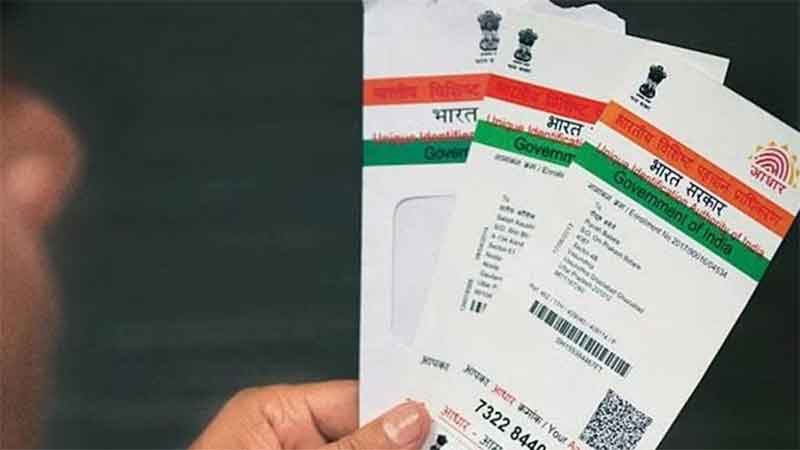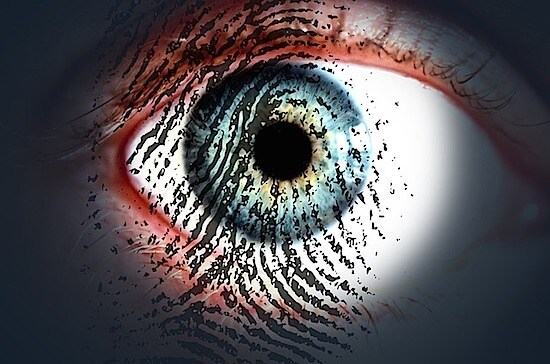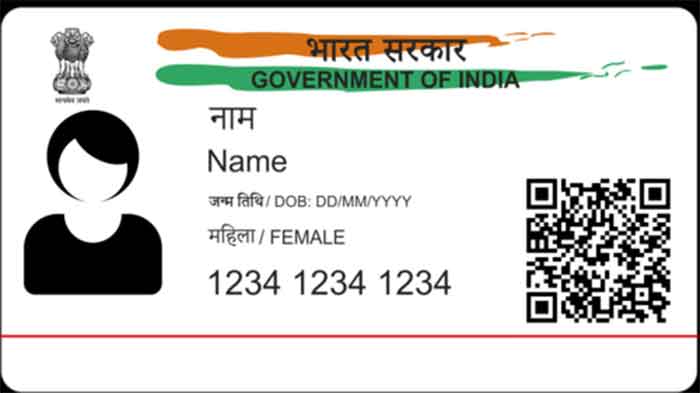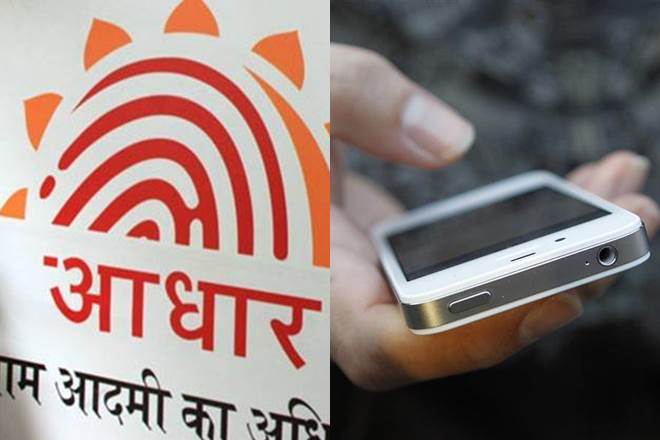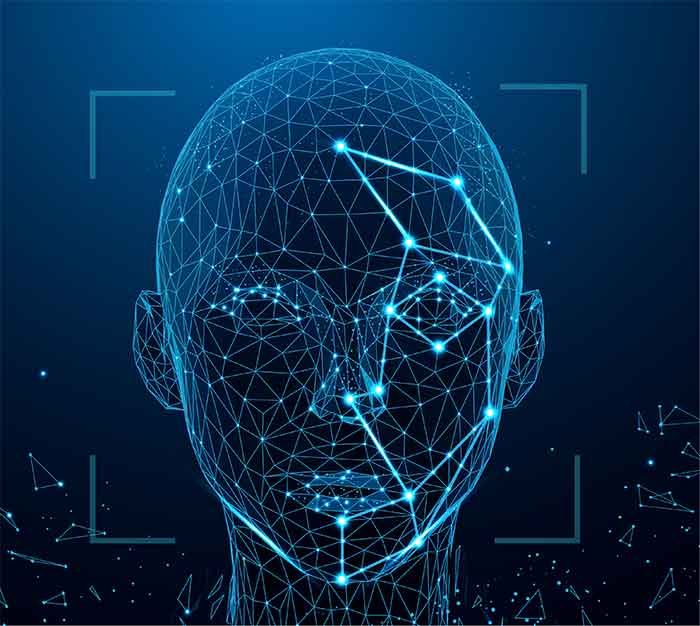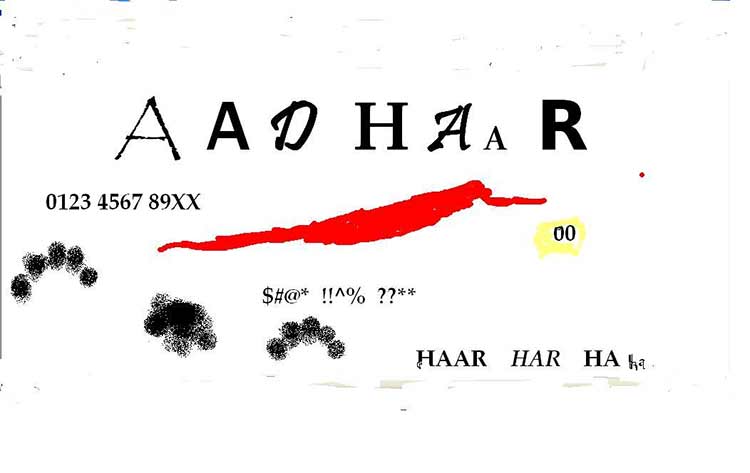
Part 1:
On September 5, 2023, a group of citizens convened online to discuss the issue of Aadhaar imposition and overreach in the context of seeding Aadhaar numbers with NPR records. This discussion was a continuation of similar sessions in which experts and activists like Usha Ramanathan and Harsh Mander had also participated. Economist, author, and professor Jean Dreze, and Delhi-based advocate Praavita from ‘Rethink Aadhaar’ (@no2uid on X/Twitter) were present for this discussion session.
Seeding Aadhaar with NPR: How ‘voluntary’ is it?
In November 2022, Mr Jitendra Nath Nandi from the Metiabruz-Garden Reach neighbourhood of Kolkata filed an RTI with the office of the Registrar General and Census Commissioner, India (commonly referred to as RGI) to ask whether the collection of Aadhaar numbers for the National Population Register (NPR) is consensual or mandatory. This RTI was prompted by the Ministry of Home Affairs (MHA) saying in its 2017-18 Annual Report that the NPR electronic database of 119.95 crore people has been created after data collection in 2010 and updation with their Aadhaar, mobile, and ration card numbers in 2015-16. He and other residents from his neighbourhood say that they are unaware of any such exercise being conducted, raising the question of whether informed consent was obtained from them before their Aadhaar numbers were seeded with their NPR records.
Mr Nandi, the publisher of a Bengali little magazine ‘Manthan Samayiki’ and a ‘No-NRC movement’ campaigner, filed an RTI on November 21, 2022 with the RGI, asking (i) if linking Aadhaar to NPR is mandatory or voluntary; (ii) if informed consent is obtained before such linking; (iii) whether the RGI office has collected Aadhaar numbers of the residents of his neighbourhood in 2015 or earlier, and (iv) an instance of obtaining informed consent from residents for “the use of their Aadhaar data for NPR purpose”.
He received a response from the RGI office on December 19, 2022. The response stated that (i) linking Aadhaar to NPR is voluntary; (ii) residents signed a declaration that “all the information provided by me is true to the best of my knowledge and belief”; (iii) Aadhaar and other information like mobile and ration card numbers were updated in 2015, and (iv) Aadhaar information has been obtained through a proforma enclosed with the reply.
The interesting thing to note is that the response sidesteps the question of informed consent and merely reiterates that respondents were being made aware of what information they were supplying. It is not clear whether respondents could refuse to provide their Aadhaar numbers altogether. Nandi and his associates also say that they have not even seen the proforma enclosed with the response, let alone sign it: “me and my neighbours have never seen such a form, nobody filled it up.”
Nandi followed up with an RTI on December 31 asking the criteria by which he was excluded from providing informed consent for linking Aadhaar with NPR, how many others were excluded and how many consented, but no clear answer was given. In the same response, the RGI’s office said that the work of collecting this information was conducted by the state government (of West Bengal).
A fresh RTI filed on March 20, 2023 with the State Public Information Officer, West Bengal was referred to the Directorate of Census Operations (DCO) of West Bengal, which responded in April. The DCO answered some questions related to government order, budget and implementing agency, but did not provide a copy of an instance of obtaining informed consent, and neither has Maheshtala Municipality, to which this was referred to on appeal.
Why is it so difficult for the authorities to supply a clear instance of obtaining informed consent? The lack of such consent has implications for the legality of the entire exercise, and undercuts the assertion that Aadhaar is not an imposition but voluntary.
NPR instruction manuals: What do they say about linking Aadhaar?
The DCO supplied a few pages from an Instruction Manual which states that respondents were asked to provide dated signatures or thumb impressions when NPR was being updated with Aadhaar in 2015. These pages do not indicate that field-level enumerators were specifically told that it is voluntary for respondents to provide their Aadhaar numbers. Debasis Sengupta, one of the participants in the discussions associated with Mr Jitendra Nandi, says: “There is no way to argue that the 2015 exercise was legitimate if there was no mechanism to convey to the enumerators that Aadhaar numbers should only be collected if it is furnished voluntarily, and if the statement above the signature only said that information given above is correct.”
Nandi and others spoke to the Central Public Information Officer (CPIO) in the DCO office on August 23, 2023 and were verbally told that since the RGI had found it challenging to independently collect biometrics for updating NPR in 2011, it turned to the repository available with the UIDAI (the authority which runs Aadhaar). She continued by saying that in 2015, the RGI had prepared a booklet for each segment/block of residents which contained their Aadhaar numbers which had already been typed in. As opposed to going door-to-door, she said that ‘camps’ were organized in which residents were to simply come in and sign under their Aadhaar numbers while also providing other items of personal/documentary information.
The applicant(s) say that at first, the CPIO had agreed to provide the 2015 Instruction Manual but she later declined after consulting with her superiors. The applicants, therefore, did not get access to the full version of the 2015 Manual.
A 2020 version of the Instruction Manual seems to have paid more attention to the fact that providing Aadhaar details is voluntary, but this document too has been pulled from government and pro-government websites. The 2020 Manual (available here) notes that “for many households, the 12 digit Aadhaar number was collected during the updation of NPR in 2015-16”. It tells enumerators that these Aadhaar numbers will be printed with the first eight digits masked. If there is a discrepancy in the visible numbers, the enumerators were to note down the number afresh and cross out the old one. Although it does say that “Aadhaar number is to be collected if provided by the resident voluntarily”, the issue is that the legitimacy of the 2020 NPR exercise (which was stalled after popular resistance and the COVID-19 pandemic) would be based on the collection and seeding of Aadhaar numbers conducted in 2015. Since informed consent was not properly obtained, Sengupta holds that “the only legitimate way of doing the next exercise legally is to remove the pre-printing of Aadhaar numbers from the NPR form and to remove the illegally seeded data from the Aadhaar database”.
- The full sequence of RTIs filed and responses received can be seen here (PPT) and here (PDF)
- Copies of RTI applications, responses, and other material can be requested from Jitendra Nath Nandi ( [email protected] )
—————————————————————————————————————————————–
Part 2:
After knowing in detail about Mr Nandi’s RTIs on the issue of ‘voluntary’ linkage of Aadhaar and NPR (part 1), the discussion focussed on the broader issues related to Aadhaar.
Consent for name-sake only
It is interesting that residents haven’t been asked or informed on how they can get their Aadhaar numbers removed from NPR records, and neither is there any specific option or instruction as to actively declining to provide consent for the same. Praavita said that the centrality of consent or the voluntary nature of Aadhaar does not seem to be translating at the ground level. The experiences of the applicant and his group can be seen as an example of this.
Prof Jean Dreze added that for those welfare schemes involving DBT (direct bank transfer), an Aadhaar-linked bank account is necessary. Here too, he observed, the obtaining of “consent” to link one’s bank account with Aadhaar is often limited to providing a line or two below which the beneficiary must sign. It is a case of UIDAI doing the bare minimum to cover itself legally. As Ms. Usha Ramanathan had said in a previous discussion, the UIDAI or the government in general makes no effort to understand why someone may not want to be a part of the Aadhaar system at all.
This makes sense in context of accepting that the Aadhaar project has long resisted the idea of informed citizen oversight and has functioned with a view to gather data and accelerate surveillance by all means necessary.
The group agreed that knowing more about the actual practices and interactions of field-level enumerators gives us a better idea of how consent and agency plays into an average person’s understanding and experience of Aadhaar than formal instruction manuals. Speaking for myself, I have been flatly refused to be given a SIM card or a Voter ID without providing my Aadhaar card, and I certainly can’t do without either.
Challenges of pushing back against Aadhaar
As a member of the Mazdoor Kisan Shakti Sangathan (MKSS), Praavita saw the expansion of the Aadhaar project first-hand, and fought it in court. After the 2018 Aadhaar judgement that broadly validated the project, she said it has been hard to organize against it. In the years that have followed, Aadhaar has grown like a gargantuan entity, beyond the guardrails set by the apex court.
Given its imense significance to the government and corporate interests, it is but natural that the State would not like the project to hemmed in and would instead want it to expand to all areas of one’s life. However, it is the citizens who stand to lose their rights and find themselves living in a surveillance state.
Praavita also cautioned that while we were right to think of pursuing a legal remedy against forceful linking of Aadhaar and NPR, the courts themselves may not take a favourable view of the case since the pervasive nature of Aadhaar has been normalized by now. Adhaar has become pervasive and entrenched, particularly after making it mandatory to avail welfare from the government was okayed by the apex court. She also said that Aadhaar is not just an issue of privacy but of livelihood itself since it often becomes an impediment to accessing work and remuneration.
Prof. Dreze noted the the fact that Aadhaar, which was meant to facilitate welfare, had become a hindrance to accessing welfare. He also highlighted the irony that instead of welfare schemes benefitting from Aadhaar, it was the Aadhaar project that benefitted from welfare schemes, at least initially, since its large-scale uptake was made possible due to the fact that it was made mandatory to access welfare.
It is difficult to imagine a roll-back or scaling-down of Aadhaar when all trends point towards the opposite. However, there is still hope if we think of framing resisting to Aadhaar in terms of a threat to democracy rather than a specific anti-surveillance or pro-privacy campaign. This has a better chance of convincing people since there is a significant section that is concerned with the shrinking of the democratic space in today’s India, said Prof. Dreze.
The wider the linkages of Aadhaar, the more the potential problems that may emerge. In light of the numerous problems with the UIDAI’s database pointed out by the CAG in 2021, multiple cases of fake Aadhaar cards, duplicates, and news reports of frauds, it is clear that Aadhaar cannot be treated as infallible or foolproof.
When sensitive and compulsory databases like the NPR are seeded with Aadhaar numbers, what happens when errors and duplications from the Aadhaar database are inherited into it? The NPR-NRC-CAA saga is a whole other can of worms, an instance of forcing Indians to be documentary citizens, something that goes against the grain of lived experience in a country where large numbers of people are non-literate and outside formal systems. Hundreds of thousands of people faced the prospect of being sent to detention camps as stateless persons for discrepancies, errors, and omissions in their documentation. The onus of correcting these details also fell upon them. Will linking to Aadhaar only increase such problems for people at the grassroots level?
Not about consent as much as Aadhaar proliferation
Beyond the question of consenting to linkage f Aadhaar and NPR, the larger question is how this represents another instance of unchecked Aadhaar proliferation and linking to multiple databses, as evidenced by its linking to birth and death registry, EPIC database (Voter list), PAN, and for accessing a whole host of essential services. All this does not the count various forms of ‘welfare’ for which it has been mandatory.
Usha Ramanathan says that such unchecked proliferation goes against the 2018 Supreme Court judgement on Aadhaar which intended to put guardrails around its expansion. She continues that this interlinking is the UIDAI’s attempt to “clean up” its data. As a specific instance, she pointed to the pre-filled booklets containing Aadhaar numbers that people were required to sign and acknowledge. The idea behind linking it to multiple databases is to try and “pin down the identity” of a person through multiple numbers. Breaking data silos and thereby enabling profiling of the data subject, is inherent to the Aadhaar project.
“What validity does Aadhaar have for NPR if it can be updated at will?”, Ramanathan goes on to ask. The imperfections of the Aadhaar database make it logical to question why it should be linked to a database concerning citizenship. Similar concerns have been raised in context of Aadhaar-Voter ID linkage and its potential to disenfranchise people, which in effect is an infringmenet of their citizenship.
The road ahead
Citizen discussions on Aadhaar, NPR, and other such issues matter not only for their content but also to show that people believe in scrutinizing the State and are not simply passive subjects or bystanders of a surveillance state. Networking with people campaigning on Aadhaar and keeping a track of its proliferation must be accompanied by efforts to connect with people from other countries and understand their concerns about similar projects: an example could be Kenya’s National Integrated Identity Management System (NIIMS) which was temporarily struck down by its High Court.
Arjun Banerjee is a political commentator

